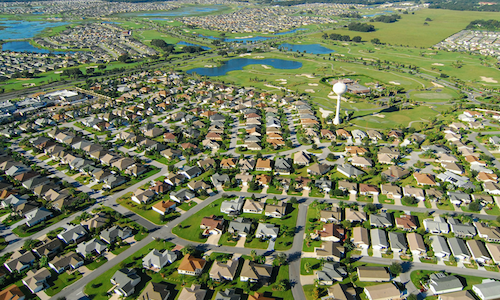
Millennials and baby boomers, the two largest demographic groups in history, are not as predictable as many home developers thought. Urban Land Magazine reports that millennials — people age 37 and younger — are not too crazy about the stereotypical lifestyle of renting in a popular urban area.
Millennials are the largest home-buying demographic in the country, making up 34 percent of all home sales. Instead of rebelling against their parents and avoiding suburban living, millennials are just buying homes later. Baby boomers typically spent a little more than two years renting before buying a home. Millennials are approaching six years of renting on average before buying their first home.
Urban Land’s recent figures seem to support the trend of millennials following their parents and adopting suburban life:
- While 21 percent of millennials in 2015 bought homes in urban areas, only 15 percent did in 2017.
- Sixteen million of the nation’s 124.5 million households were headed by millennials in 2015; by 2035, that number is expected to be 49.6 million.
- More millennials are concerned about space for a dog than space for marriage and children.
- Those between ages 25 and 34 have seen the largest buying growth activity in secondary cities like San Antonio.
- Sixty-four percent of millennials who bought a home are first-time buyers.
Builders have been revisiting their development strategy in response to these unexpected trends. Millennials and baby boomers are seeking similar features in their suburban communities. Both are focusing more on lifestyle activities associated with their neighborhood rather than spacious, cheap homes.
Nature trails, community centers, yoga classes, farmers markets and other activity opportunities are being pushed to the top of the list for home buyers. Baby boomers and millennials alike are seeking walkable areas with restaurants and authentic retail nearby.
Money is still a concern for both demographics, but rather than downsizing, baby boomers are staying put and millennials are coming to them. Originally, baby boomers were thought to move into urban condos as they retire, but Urban Land reports the opposite. After the 2008 market crash, many baby boomers saw their life savings at risk. Although the market is recovering, the oldest of the baby boomers are turning 72 this year, and they do not seem to be moving.
Baby boomers are also prioritizing communities with mixed age populations rather than senior living communities with gated age requirements and no integration. Having millennials nearby, baby boomers say they feel younger. Developers may want to prioritize lifestyle and affordability when reimagining the suburbs, marketing walking trails, sustainability and authenticity.
